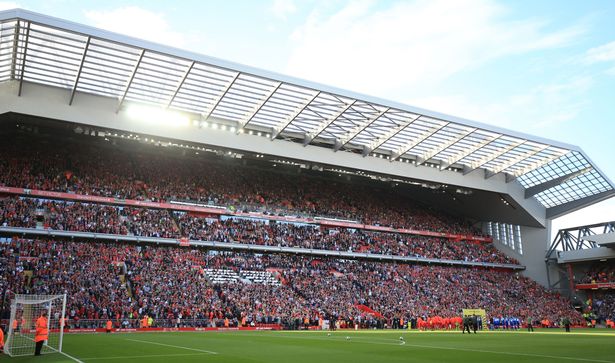By Paul Nicholson
September 29 – Big thinking Premier League club Liverpool may shelve the next phase of their stadium development, according to comments made by owner John Henry in the US.
Henry suggested that the club has concern over another fan backlash over ticket prices. “Ticket prices are an issue in England,” he said. “That may foreclose further expansion.”
This could open the door to new money into the club that so far Fenway Sports Group (FSG) have been rejecting. While it has been repeatedly asserted the club is not for sale, the owners have said they would look at a strategic investment.
Liverpool’s new Main Stand opened this season increasing the Anfield ground capacity by 8,500 seats to 54,074. The redevelopment cost £120 million and is funded against the security of the revenue from extra tickets sales
The next phase of expansion at Anfield would add another 5,000 seats at the Anfield Road end of the stadium. But like the Main Stand expansion the suggestion from Henry is that this would need to financed against the collateral of future ticket sales – which would need to be raised in price to make the sums work.
Liverpool caused anger amongst fans when they announced ticket price increases for the new Main Stand, causing a walk-out of 10,000 fans at their home game against Sunderland on 77 minutes – £77 was the new price for the most expensive tickets, increased from £59.
The club moved swiftly to appease the fans who did achieve a reduction in the ticket prices that had included the introduction of the club’s first £1,000 season ticket.
Fan groups reacted to Henry’s latest comments with some suspicion, arguing that the club is making more than ever and that they had never been told that further development was contingent on higher ticket prices. Outline planning permission has already been granted for the next phase of development.
But his comments may be a precursor to ushering in a change in the club’s ownership structure.
Liverpool’s owners recently said they were not selling despite an initial offer of £800 million tabled by Chinese industrial conglomerate Everbright. Everbright’s representatives later said they would be prepared to increase that offer, but the club still maintained it was not for sale but re-emphasised it would consider a strategic investor’s cash. It is not a huge leap of imagination to see that the Chinese money could come back into the equation if FSG were serious about expanding Anfield again but unwilling to risk their own money or a ticket price hike.
Contact the writer of this story at moc.l1713560196labto1713560196ofdlr1713560196owedi1713560196sni@n1713560196osloh1713560196cin.l1713560196uap1713560196

